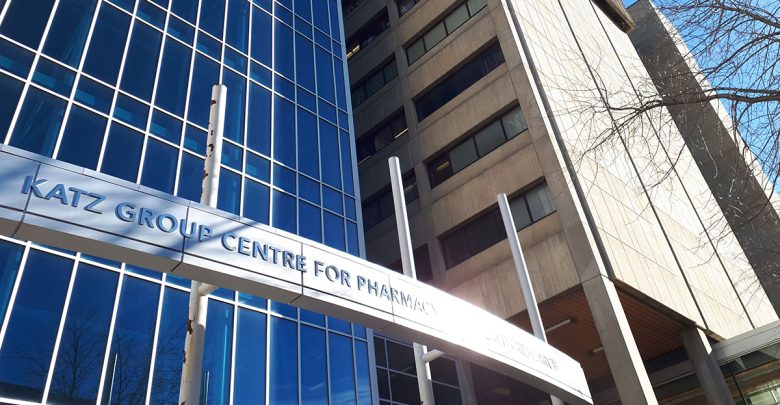Miscommunication leads to pharmacy students believing they’d lose reading week
Instead, the potential removal of reading week will apply to students in the newly created PharmD program only
 Mindy Quang
Mindy QuangStudents in the University of Alberta’s faculty of pharmacy and pharmaceutical studies will not lose their fall term reading week as was previously thought.
The miscommunication began on October 15 when the faculty presented a proposed academic calendar to the General Faculties Council (GFC) academic planning committee. The committee passed a motion to take away reading week for all students enrolled within the faculty.
But on November 19, at a GFC executive meeting, it was clarified that only students in the recently created doctor of pharmacy professional degree program (PharmD) would lose their fall term reading week.
Neal Davies, dean of the faculty of pharmacy, apologized for the mistake.
“I must admit the wording on the original document… was poorly worded,” Davies said. “I apologize if that has caused any confusion.”
According to Davies, the faculty only intended to take away fall reading week for students in the PharmD program so the program could meet the hours required for professional accreditation.
“We made a promise to our accreditation board, we made a promise to the government in terms of the number of hours we put in, we made a promise to the students and everyone was well aware of what we’re doing,” he said.
Students’ Union vice-president (academic) Akanksha Bhatnagar pointed out that due to the wording of the original motion, pharmacy students outside of the PharmD program thought would lose their fall term reading week.
“The original motion was flawed,” she said. “[GFC] approved something that is not true. We approved something that we did not have context for.”
The Alberta Pharmacy Students Association (APSA) began a letter campaign which saw 88 letters, signed by students, addressed to U of A president David Turpin voicing their concern because they thought they would be losing their fall break.
Turpin said that a revised motion would need to be passed in order to reverse this change. This would require a motion to rescind the “flawed” motion and then put forward a revised academic schedule for approval in December.
Lack of consultation “concerning”
Bhatnagar said no one will deny that the PharmD program is a “great program.” However, she was concerned that the faculty only asked students if they wanted the program to meet the requirements for accreditation, and not if they were willing to lose their reading week.
“The issue is not the PharmD program,” she said. “It is the lack of consultation leading up to [this].”
Ken Cor, an assistant dean in the faculty, said he disagreed with Bhatnagar’s statement regarding the lack of consultation.
“I take issue with your statement,” Cor said. “We are one of the most consultative faculties.”
Cor said six town halls were conducted with students, as well as meetings with APSA. He said that once the change to the academic schedule is rescinded, further consultation will be done to show the students perspective on the issue.
Davies added that since many of the students who wrote those letters are in their first year of pharmacy, they wouldn’t have been part of the original consultation process as they wouldn’t have been in the program yet
Bhatnagar said she hopes the faculty will follow through with the consultation process because current students in the faculty do not feel as if they had been consulted. She also hopes the faculty will find a way to make up for the loss of reading for PharmD students through other means.
“I do not think I will stand for the faculty of pharmacy to continue to not consult students on a variety of issues including this reading week issue,” Bhatnagar said.
With files from Nathan Fung.




